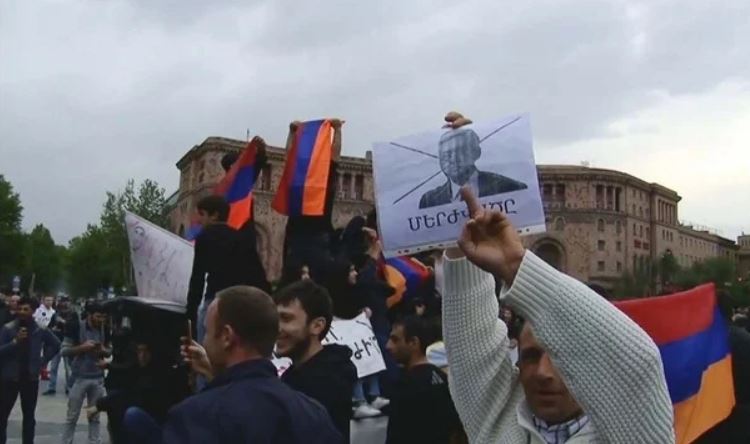And should the government always follow the public mood?
“We (that is, in Russia – AA) are very much looking for some geopolitical preconditions for the behavior of the Armenian government. Aside from the fact that Armenian society is tired of the Karabakh conflict and mobilization, the willingness to sacrifice something for the sake of Karabakh, which existed in the 90s, does not exist now. Society is changing, its priorities are changing, and politicians are naturally responding to it.” Such an idea was expressed by Russian political scientist Sergei Markedonov.
The geopolitical factor is carried out not only in Russia but also in our country. It’s easier that way. Russia wants this, Turkey and Azerbaijan – something else, Iran – this, and the West – that. And it turns out to be something like physics: the sum of the force exerted by those “pulling the blanket in different directions” must be calculated.
That’s not how it is in politics or in historical and social regularities. Not even one human body is the sum of different chemical effects. Where are the aspirations, emotions, moods of thousands of people? In all these “geopolitical calculations” we often forget to reflect on ourselves: what do we want, what do we strive for? It’s not that nothing depends on us, because the rest are big and strong. In that case, there would be 3 or at most 5 states on the face of the earth, not more than 200. The successes and failures of the state, its existence or non-existence are primarily due to internal factors, and, by the way, exaggerating the role of external forces is also an internal factor. According to Markedonov, the Armenian society is tired of the Karabakh issue, and Pashinyan is building his policy taking into account that fact. One can generally agree with this idea, although I am not sure that “fatigue” is the right word. People who took to the streets in April-May 2018 did not give the impression of being “tired” at all. They were active, happy, and enthusiastic, but Artsakh was not really one of their priorities. It was not Artsakh, it was not our state that united them. In that case, what was it?
Read also
If we try to answer in one word – hatred. In his famous work, Freud states: “Hatred for a particular person or institution can play as much of a unifying and emotional connection as positive emotions.” The love for the leader Nikol Pashinyan and the hatred for the anti-heroes – Kocharyan, Serzh, “Sashik,” “Lfik” – these are the feelings with which the Armenian society lived and continues to live. I say “partly” because “Sashik” and “Lfik” quickly ceased to be anti-heroes, as they performed their role of mythical symbols. Can these moods be considered “tired of the Karabakh issue”? Probably, to some extent, it also played its role. The two main “objects” of hatred have been manipulating this issue for 20 years, justifying their governance flaws. Can this “fatigue” or indifference be one of the main reasons for the defeat? I have no doubt about that. I remembered an incident in that regard.
When Vazgen Manukyan was appointed Minister of Defense, he held a meeting, which I also attended. I well remember his following thoughts (of course, I can not quote exactly). The number of weapons and military capabilities is multiplied by the degree of resistance of the nation; these two components are not added together, but multiplied. I do not think that in the summer of 1992, when those words were said, Azerbaijan had no military-technical advantage over us. From 1994 to the present, our resistance has fallen and continues to fall. From 2018, that fact simply became obvious. It can also be called “fatigue.”
Markedonov’s idea that Armenian politicians, and first of all the authorities, are oriented by public moods is indisputable. And this begs the question: is politics the area where “the customer is always right”? I think this is not always the case. I suppose, for example, Peter I or Otto von Bismarck did not think so. Such people had certain visions and pursued them, rather than trying to satisfy and develop their instincts. The same Bismarck said, “The statesman’s task is to hear God’s footsteps marching through history, and to try and catch on to His coattails as He marches past.”
Aram Abrahamyan




















































